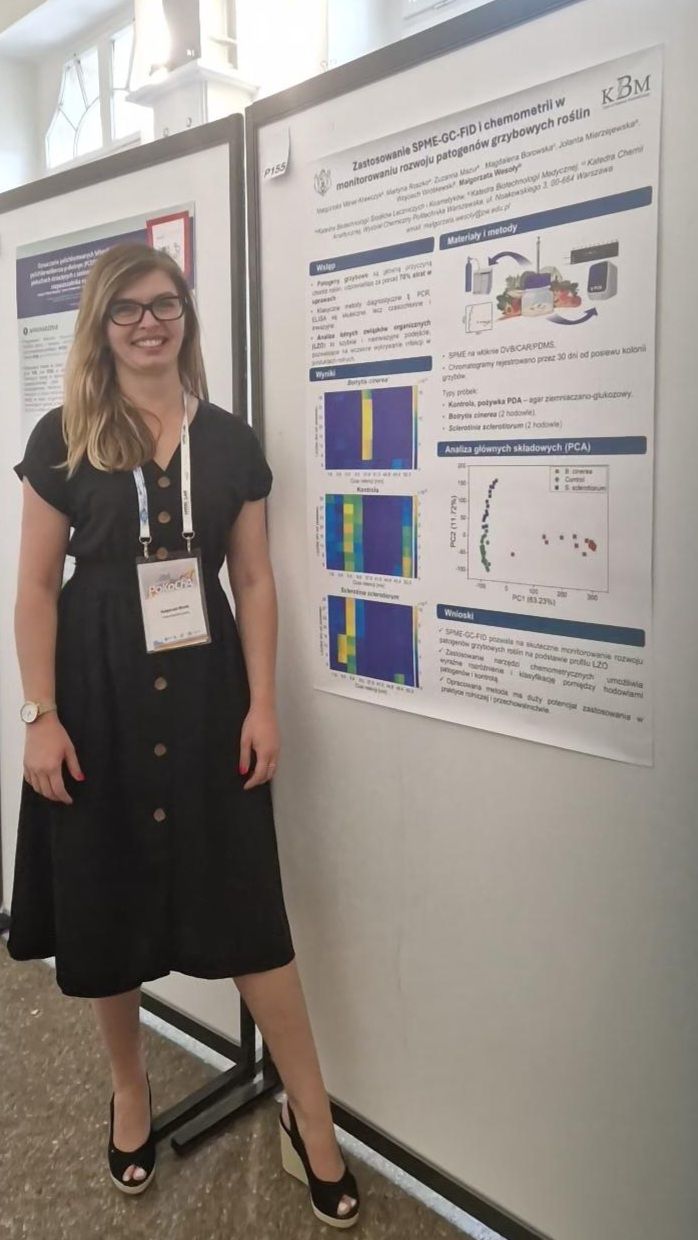A researcher is working on a device that will recognize plant diseases by their smell.

Each plant has its own characteristic "fragrance bouquet" - these are volatile organic compounds that it releases. A scientist from the Warsaw University of Technology, Dr. Małgorzata Wesoły, is working on a device that will "sense" the pathogen in a collected air sample, even before it shows visual symptoms.
"Most of us have probably had a situation when we opened the fridge and immediately felt that the milk had gone bad. Even if we don't know exactly what compound it is, we can sense something characteristic. The same idea guides me in my project. I approach the analysis holistically, not focusing on detecting any one specific substance, but creating a so-called volatile profile of the vegetable - healthy and infected with the pathogen. Based on such a 'smell bouquet', infections can then be detected in the early stages, often before visible symptoms appear," the researcher explained in an interview with PAP.
The starting point here is volatilomics, a field of science that analyzes volatile organic compounds (VOCs), which are secreted by living organisms, including humans, plants, microorganisms and even cancer cells.
As part of her project with the National Science Centre, the scientist from the Department of Medical Biotechnology, Faculty of Chemistry, Warsaw University of Technology, analyses profiles of volatile organic compounds emitted by vegetables – mainly carrots and onions (of which Poland is the leading producer) – infected with diseases that frequently occur in them.

Currently, Małgorzata Wesoła's team is collecting, analyzing, identifying and classifying compounds released from a spoiling carrot in a jar. The data analysis process is carried out using chemometric methods, used to analyze multidimensional data. This will create an "odor fingerprint" of carrots - healthy and spoiling.
Ultimately, the solution is being created with the intention of using it in agriculture. "It is estimated that up to 20% of losses in agriculture are related to plant diseases. If it were possible to develop a tool that would detect these diseases earlier, we could save a lot of crops," said Małgorzata Wesoły.
The analytical approach being developed is to be used to check food after harvest, stored in closed rooms. "The unique, characteristic smell associated with the infection appears earlier than the visual symptoms - if they are already visible, it means that the vegetables are infected. Most often, such vegetables or fruits go to animal feed, but are ultimately disposed of. And this way it would be possible to react earlier and, for example, sort the crops or change the storage conditions," she explained.
The operation of the device itself seems simple: air is collected from the storage room, the sample is analyzed and compared with the database.
As the scientist said, she uses various analytical tools to detect plant diseases, both gas chromatographs coupled with various detectors and an electronic nose.
According to Małgorzata Wesoła, the research is innovative because it opens a new path in the diagnostics of plant diseases. "Traditional diagnostic methods - e.g. molecular, serological - are often expensive, time-consuming and difficult to use on a large scale. By demonstrating the effectiveness of the analysis of volatile organic compounds, our project will create the basis for fast and cheap diagnostics of plant diseases," she concluded. (PAP)
Science in Poland
akp/ agt/
The PAP Foundation permits free reprinting of articles from the Nauka w Polsce Service, provided that you inform us by e-mail once a month about the use of the service and provide the source of the article. In portals and internet services, please include the linked address: Source: naukawpolsce.pl, and in journals the annotation: Source: Nauka w Polsce Service - naukawpolsce.pl. The above permission does not apply to: information from the "World" category and any photographs and video materials.
naukawpolsce.pl





